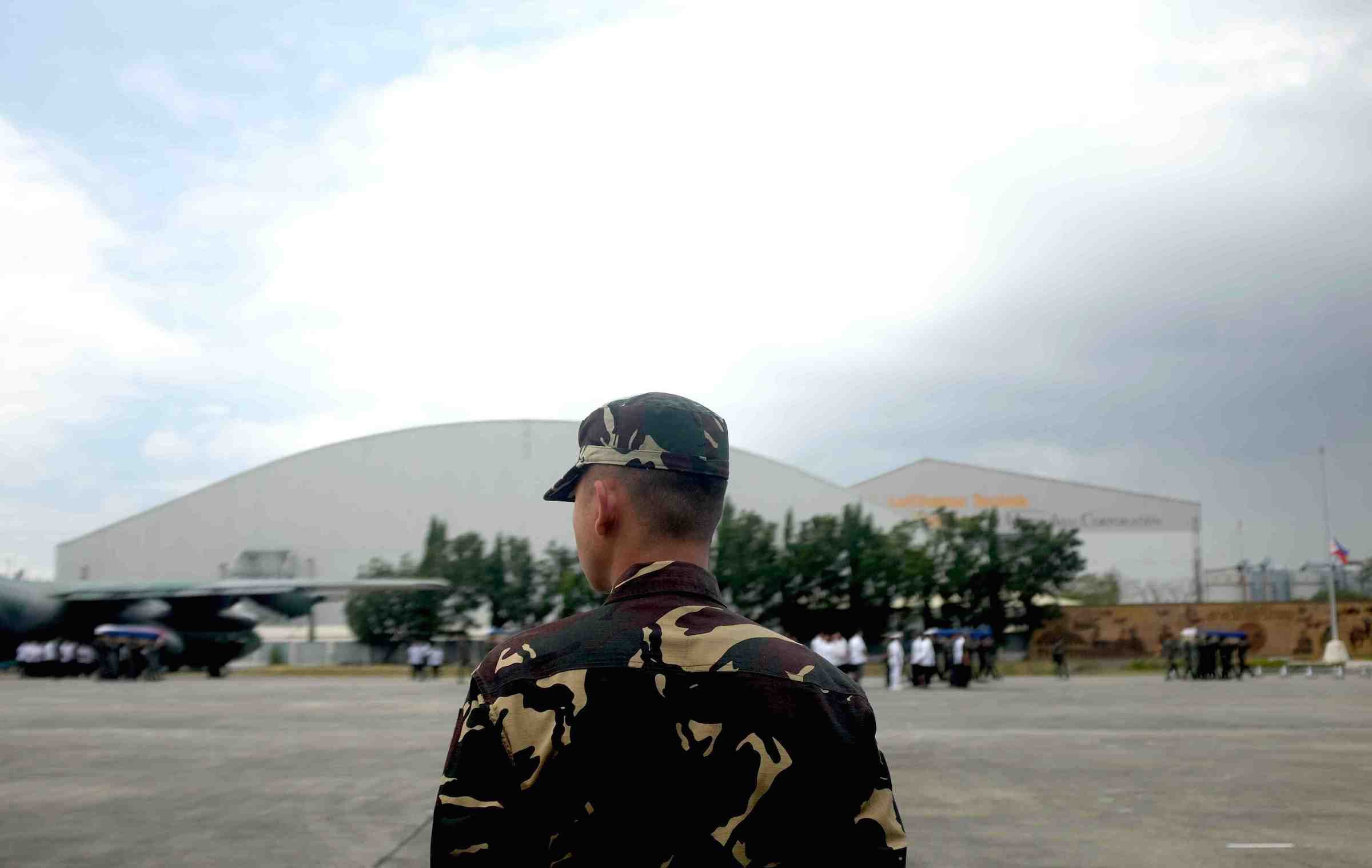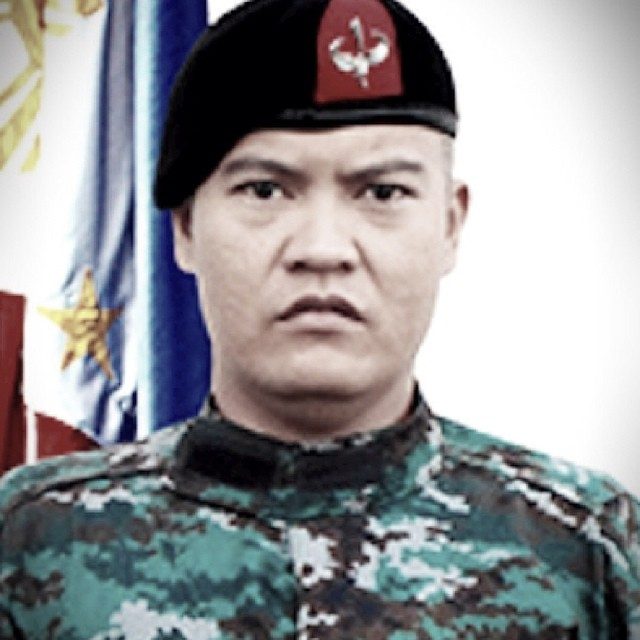SUMMARY
This is AI generated summarization, which may have errors. For context, always refer to the full article.

MANILA, Philippines – Buk and Macoy grew up playing soldier. Buk was the big brother, two years older than Macoy. They were two boys in a family of 3 children: Ephraim, Marcos and Ruth, their names culled from the bible by religious parents.
Buk was the sober one, the responsible one, the boy who fought his little brother’s battles and made sure he was safe. It was Buk who lectured Macoy about smoking and drinking, and Macoy who smoked and drank. When they were both security guards, it was Buk who did the laundry and made sure Macoy was fed. They fought often, because they were so near in age, but they were brothers, now and forever.
Macoy married first, joined the army first. Buk put on his uniform 3 years after Macoy did – but he wore the fatigues of the Special Action Force.
After all, Buk said, if they were both going to be in service, it was only right that one of them joined the police.
They didn’t look very much alike. 33-year-old Buk was big and solid, Macoy at 31, long and lean, a scar on his left cheek from training.
It may be a dangerous life, said Macoy, but it is a good one. Men are supposed to support their families, but few men have the honor of both supporting family and serving the nation. In the last few years, the boys have taken over support of their father, a former overseas mechanic who now tinkers with the occasional engine.
There was never any argument which uniform was better. There may have been some who believed the boys of the army barracks were superior to the police SAF, but Macoy wasn’t one of them. He knew what the SAF could do.
The SAF were the best, he said. His brother was the best.
Buk comes home
The C-130s arrive at 10 in the morning. They come in one after the other, gliding into the tarmac of the Villamor Air Base in a carefully choreographed ballet.
From behind the buildings, the commandos stream out. 1,038 of the elite of the Philippine National Police march across the asphalt as one, shadows spiking on the tarmac, booted foot marching after booted foot, the chosen of their battalions forming a long, unbroken line of men stretching across the horizon.
They stop before the open cargo door of C-130 4762.
9 of the commandos step forward. 8 sets of arms reach for the white coffin covered in the blue and red of the Philippine flag.
From the bleachers, a woman wails.
Down on the tarmac, behind blue ropes, Macoy watches.
He stands rigid, feet planted, hands clasped at his back, the one man in the crowd of police uniforms wearing the green and ochre fatigues of the Philippine Army. The foot inside the right boot twitches under the leather. A muscle jerks in his jaw.
His eyes are trained on the last plane – C-130 3633.
44 commandos were killed in Mamasapano, Maguindanao on January 25, 2015. The list Macoy saw sequenced the names in the order of their recovery.
The last, number 44, was identified as 33-year-old Police Officer 2 Ephraim G. Mejia.
Macoy calls him Buk.
‘I kept hoping’
On Monday, January 26, Corporal Marcos Mejia of the Philippine Army’s 45th Infantry Battalion, stationed in Cagayan, received a phone call from a civilian cousin.

The cousin said he couldn’t reach Buk at first, but when the call finally went through, a voice that wasn’t Buk’s answered, speaking in a language that Buk had never spoken.There was news on television, he was told, about an encounter in Maguindanao.
The cousin was worried. Buk might have been taken, might have been held hostage.
Macoy called friends, was told there was an encounter, bodies being extracted. He hoped Buk had dropped his phone somewhere.
Macoy waited for the list of names. When Buk’s name was released, he still hoped. There was nothing else to do but hope.
Even while he stood on the tarmac of the Villamor Air Base, 4 days after the encounter, Macoy Mejia believed his brother might still be alive. The identification could have been wrong. Buk might still be out there, wandering the swamps of Mamasapano.
He prayed. Let it not be him. Please, let it not be him.
It was only later, when the coffin lay open in the funeral parlor, that Marcos Mejia understood he was no longer anyone’s little brother.
‘They said they knew nothing’
It was Macoy’s comrades, soldiers from the 45th, who were down in Maguindanao when the SAF radioed for help.
They told Macoy they didn’t know. They told him, again and again. They didn’t know there were SAF troops in combat. They didn’t know what was happening. They couldn’t move, they wished they had.
Macoy was angry at first. Wanted to strike out, wanted to hurt someone, wanted to do something, anything. Only there was nothing to do and no one to hurt. Buk was dead. Macoy was well aware that in the end, he was one soldier, and soldiers followed orders.
He wished he had been there, out in the dry heat of the killing field, on the day the rebels shot down his brother.
He wished he could have been there to protect Buk.
Now it is Macoy who will bring Buk home, all the way to San Nicolas, Pangasinan, where two brothers once played soldier.
Brothers-at-arms
Once there were two boys, Buk and Macoy. Buk was older, the sober one, the responsible one, the boy who fought his little brother’s battles and made sure he was safe.
One day there was gunfire, and then Macoy was alone.
Macoy is now the responsible one, the sober one, the one who will be there no matter what. He will stand as father for Buk’s 2-year-old July. Someday, Macoy will tell her about the hero who died in a field in Maguindanao. He will tell her about the man who protected him and guarded him and kept him safe.
He will tell Macoy’s daughter to be proud. He will tell her to remember.
Police Officer 2 Ephraim G. Mejia may no longer report for duty, but he left a little brother who will. – Rappler.com
Add a comment
How does this make you feel?
There are no comments yet. Add your comment to start the conversation.